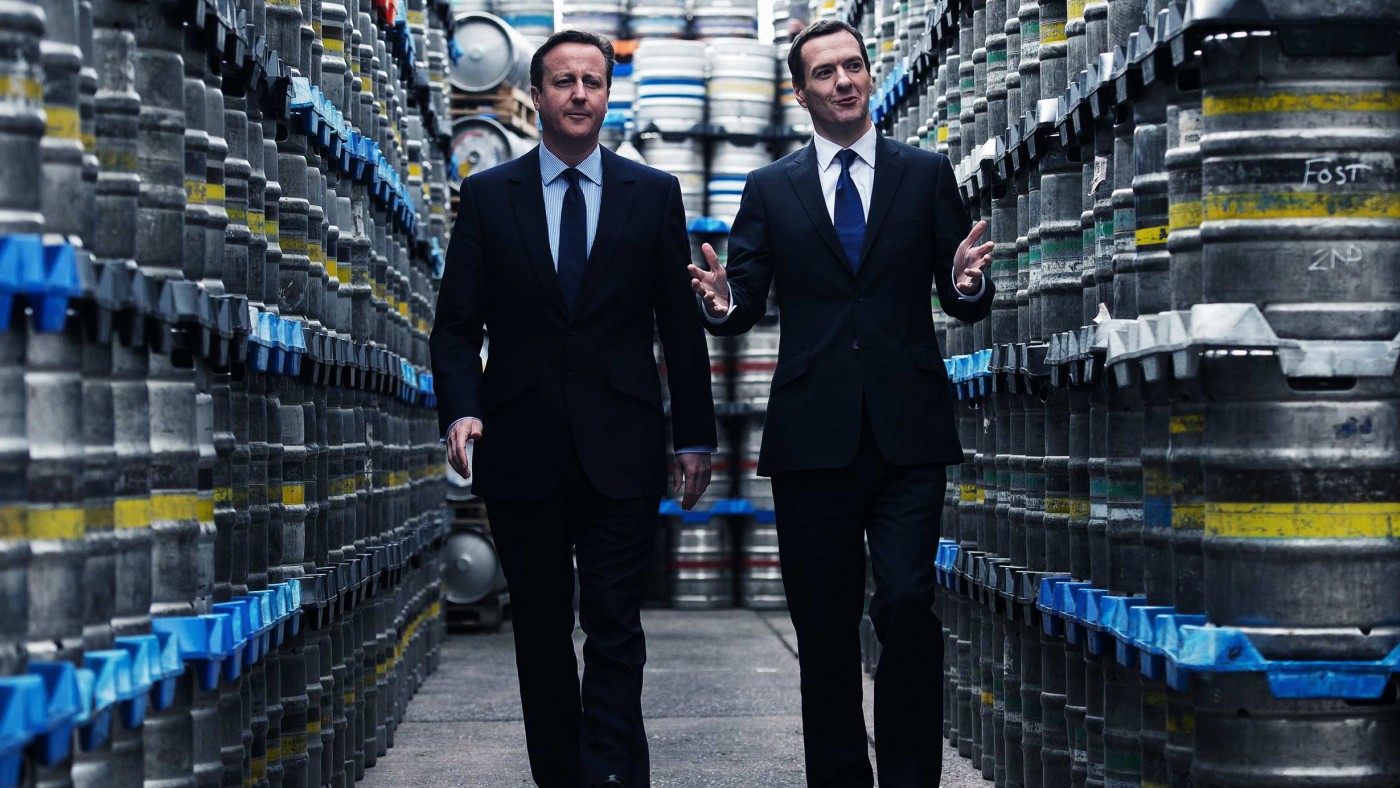In discussing British politics, there is one obstacle to intellectual clarity: the British electoral system. It is good at strong government, less good for sound analysis, and both for the same reason. British elections usually turn slender pluralities into sizeable majorities. First-past the post also penalises smaller parties, and has ensured that the big two parties are significantly insulated from voter discontent. It also means that relatively small net changes in voter behaviour can have dramatic consequences, as occurred earlier this year. Indeed, that result had a succession of dramatic consequences. As hardly anyone had expected David Cameron to win an outright majority, his success greatly enhanced his authority in his own party. Then came developments in the other parties.
The Liberals have always depended on activists who not only wear anoraks; they wear them between the ears. But there has always been a meniscus of sensible people to provide leadership and plausibility. Not any longer. The unexpected scale of the Liberals’ losses left the anoraks in charge of the party, able to choose one of their own to lead it. Then the real drama began. Instead of working out how to turn this to its advantage, Labour decided to out-degringolade the Liberals, with a variant of a once-popular song: ‘Anything you can do, I can do worse.’ In the last Parliament, outside Ed Miliband’s entourage, there was widespread agreement: Labour had chosen the wrong Milipede. Talk about learning from defeat. By comparison with Jeremy Corbyn, Ed Miliband was a combination of Attlee’s stature, Wilson’s eloquence and Blair’s electoral flair. An Irish Parliamentarian once declared that Ireland’s cup of troubles was running over – and it was not yet full. A significant majority of Labour MPs know exactly how he felt – yet there seems to be nothing that they can do about it.
So does this mean that David Cameron will enjoy an easy mastery of the battlefield? Absolutely not. He is now facing the two greatest challenges of his political career. In neither case is victory certain. The lesser challenge will come later. David Cameron would like to win the European referendum and then hand over the Premiership to George Osborne. The relationship between a Premier and his Chancellor almost always comes under strain. But the Cameron/Osborne partnership has been a spectacular example to the contrary. Never have the holders of the two posts worked more closely, more harmoniously – despite the economy’s obstinate refusal to start growing until the second half of the last Parliament. When good soldiers are under fire together, they bond together. With politicians, more complex moral creatures, that is less often true. But with those two, it has been. It helps that they are both men who are happy in their own skin and have huge resources of intellectual self-confidence. Their relationship has been this government’s backbone.
It may also have been a political liability. Their harmony can easily jar with the public. We do not need to go all the way with Thoreau’s claim that most men lead lives of quiet desperation to recognise that an awful lot of people are discontented. This has been encouraged by social and cultural changes over at least a generation. Our predecessors were more easily satisfied at lower levels of comfort. Their needs were much more closely related to necessities – not the wants encouraged by the relentless bombardment of consumerism on television. The decline of religion is a factor in all this. These days, very few people believe that deferred gratification in this world will be rewarded in the Kingdom of Heaven. The divorce rate is one of the outward and visible signs of this new culture of dissatisfaction. So is the decline in respect for the institutions of government in general and politicians in particular.
It might seem paradoxical to relate this to Messrs Cameron and Osborne. They have won respect. But they have not won affection. It is as if their being so palpably at ease with themselves inflames resentments among those to whom ill-at-easeness comes naturally. There is also the public-school question. The obsession with where people went to school – which was, after all, some time ago even for men as young as those gilded twins – is tiresome. It is an indication of political immaturity. It is also depressingly widespread. Eton is a four-letter word. St. Paul’s (Mr Osborne’s school) is little better.
It could be that this will not matter. If the economy goes on growing and Labour remains unelectable, George Osborne could easily come to seem inevitable. His cause will probably be assisted by his choice of, in effect, running-mate. Sajid Javid did not go to Eton. He has a wonderful background story. Indeed, he exemplifies the transformation of the Tory party during the Cameron years. He could help to extend Tory rule into the 2030s.
But first, the elephant in the room has to be exorcised. It is widely assumed that David Cameron will win the European referendum partly because the voters will opt for safety first. That probably will happen. But the anti-Westminster public mood, masked rather than obliterated by the Cameron win, could still cause a problem, exacerbated by this government’s chronic failure to explain itself properly.
The likelihood is that the UK will stay in the EU, David will hand on the baton to George and Labour will either stay together and be unelectable, or will split and be unelectable. But in recent years, the foundations of popular consent which underly the British political system have become steadily more fragile. At some point, that is going to matter.


